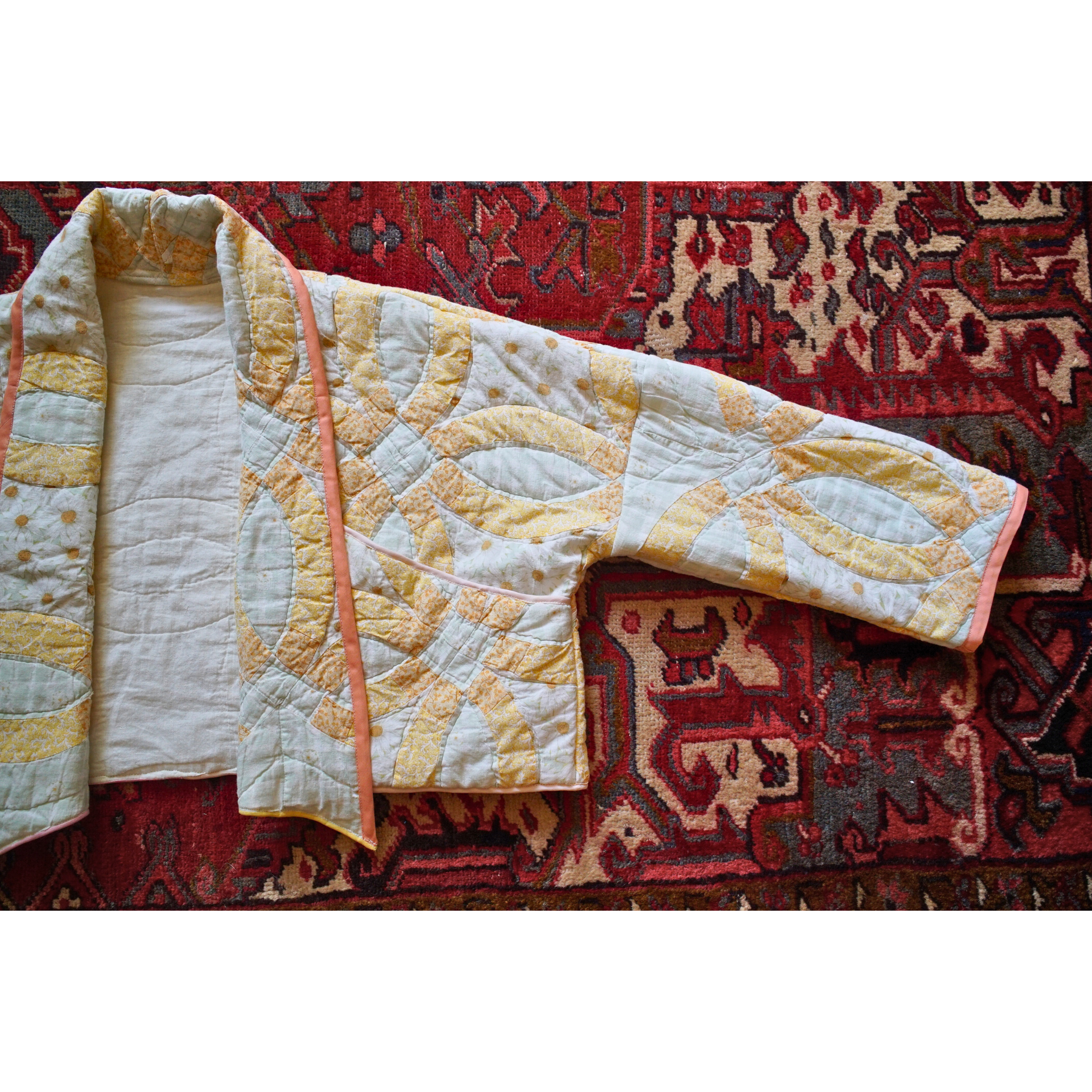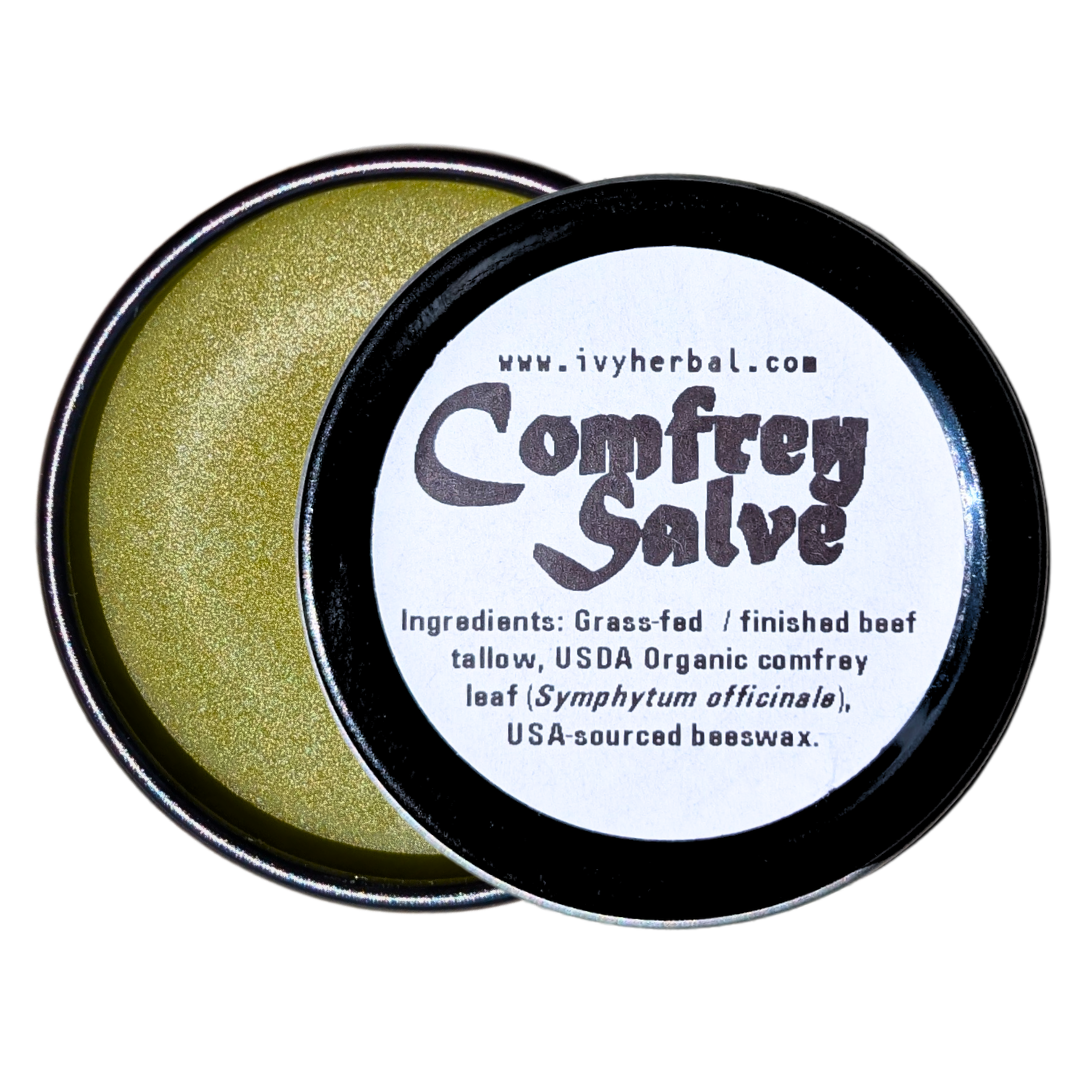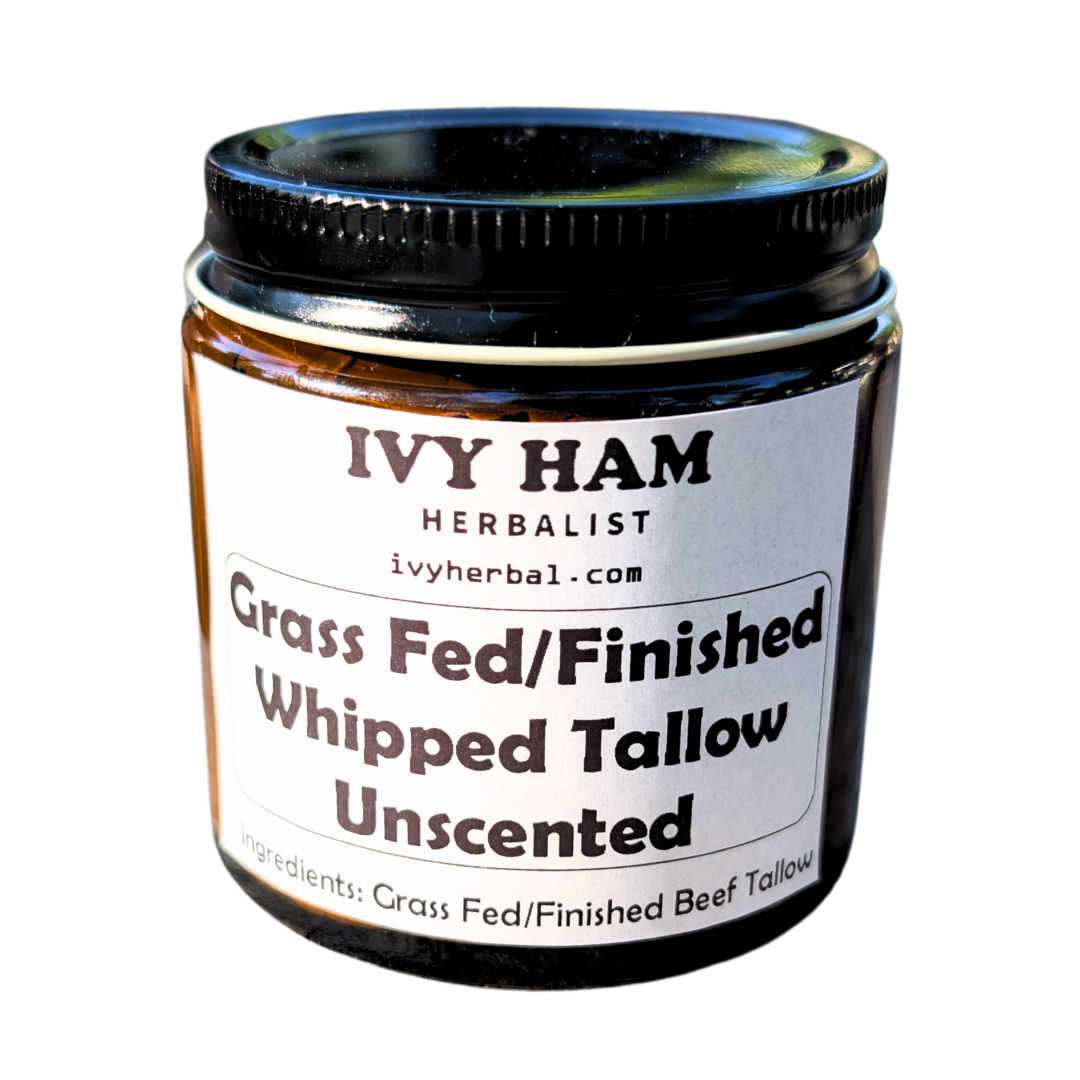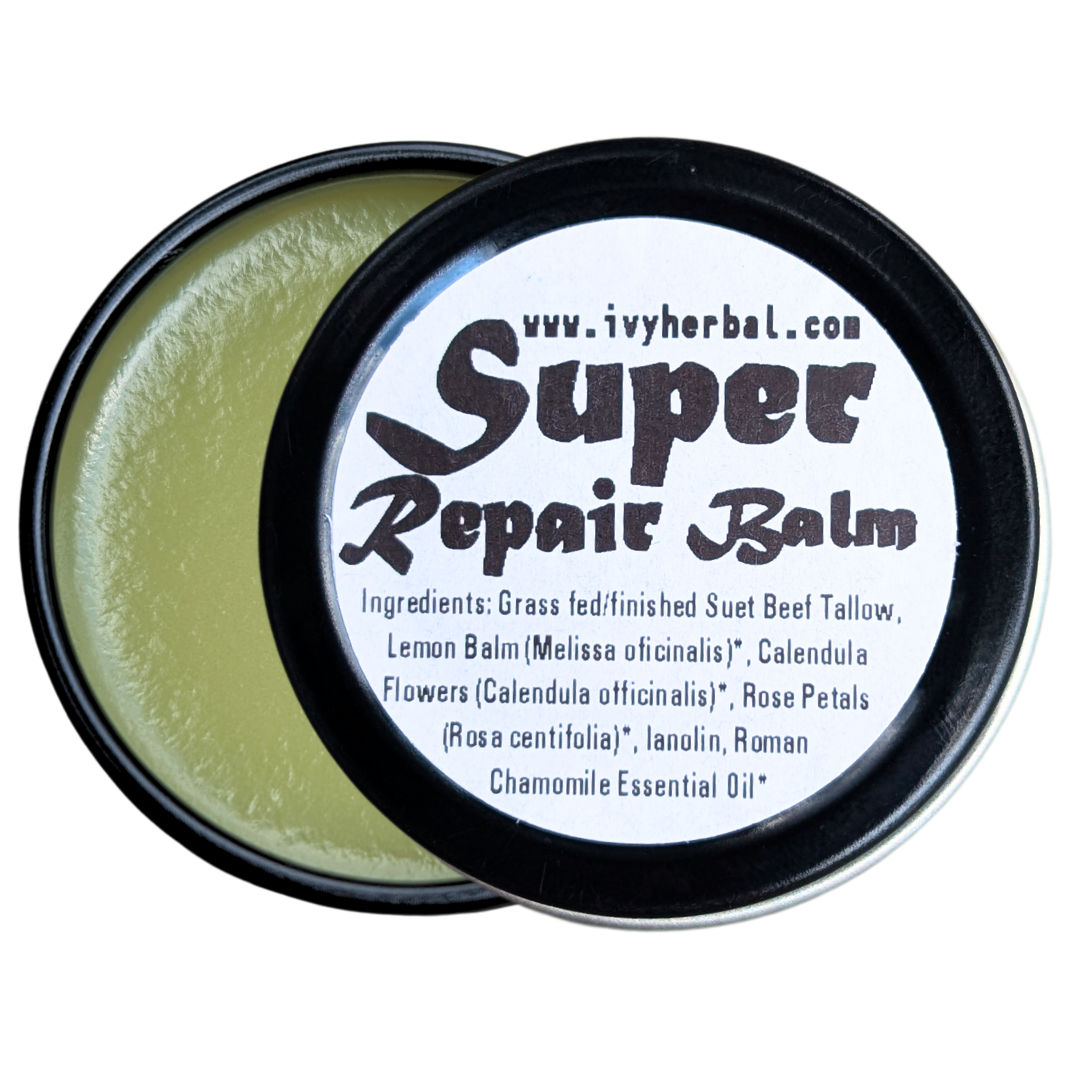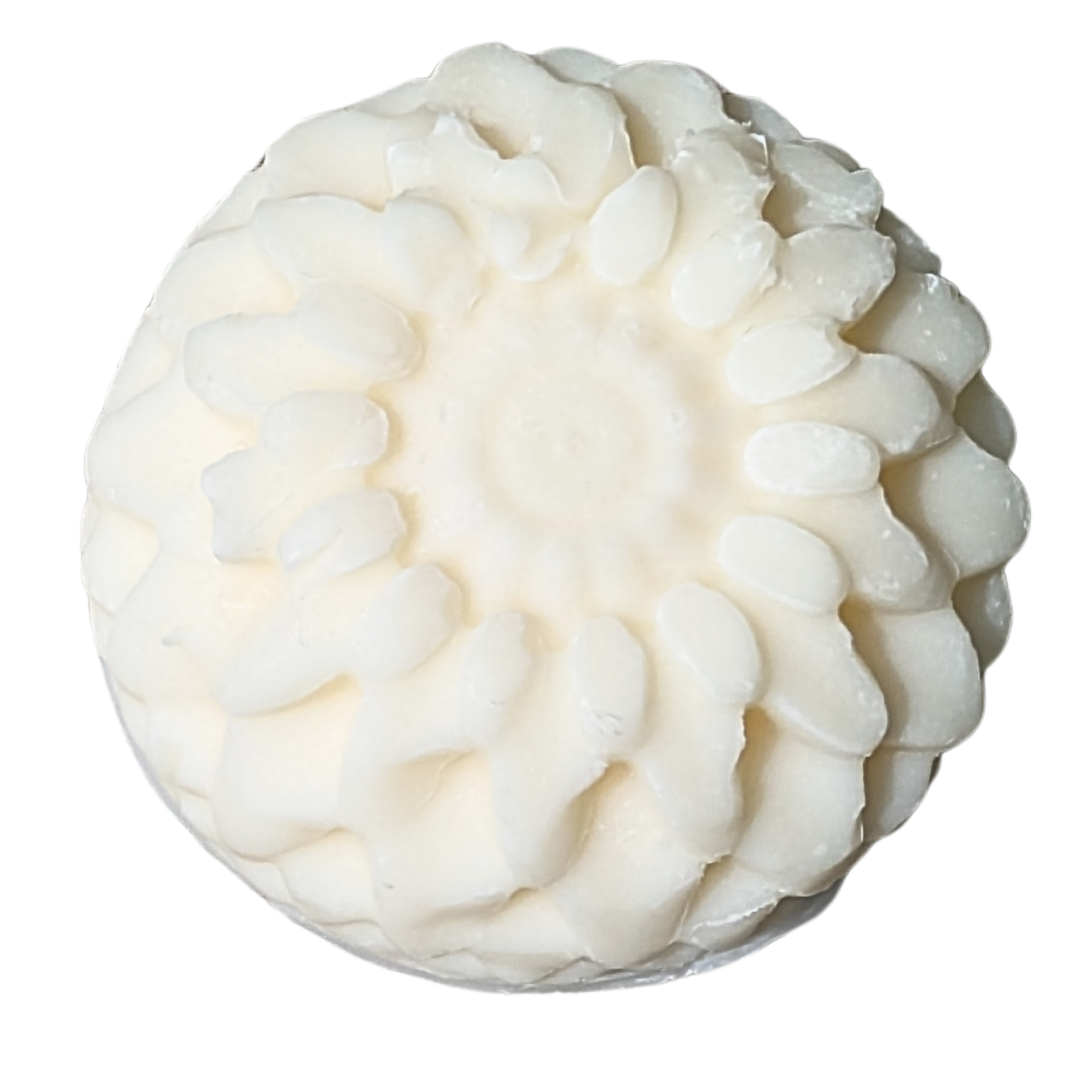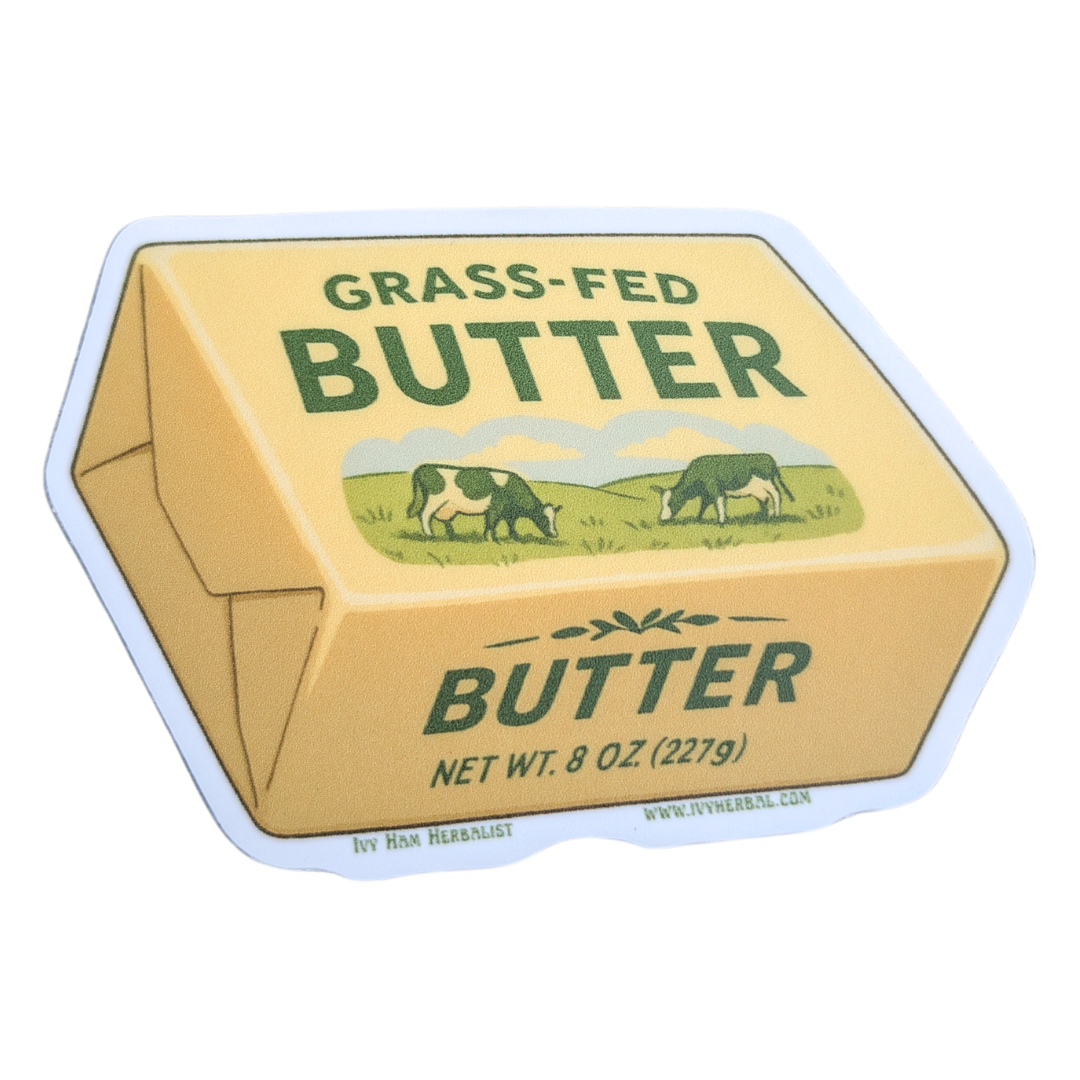Herbal Remedies for Hair Loss & Male Pattern Baldness
Having some hair loss is normal, in fact most of us lose anywhere between 50-100 hairs per day as a part of natural shedding. If you’re losing more than that or are noticing areas where your hair is visibly thinning, this can be concerning aesthetically but also can indicate a deeper health issue.
In this article I’ll explore the reasons why we lose hair, including dietary, lifestyle, hormone fluctuations and genetics and how to combat these issues naturally so that you can stay as hairy as you want to be. ✨
Keep in mind I don’t provide medical information and this article should be used for educational purposes only. Please use common sense, and make sure to talk to your healthcare provider before trying anything you read online, especially if you think there may be a deeper health issue at play.
Why We Lose Hair
Hair loss doesn’t just happen for a singular reason, there are actually a lot of reasons we can start losing more hair aside from genetics. Here are some of the most common reasons that we experience hair loss:
Hormones Fluctuations
Thyroid health: Hypo and Hyper thyroid can both see hair loss as a side effect. Your thyroid is basically the master of a lot of your hormones which govern your metabolism and a ton of other bodily functions.
In my opinion, thyroid imbalances are probably a lot more common than is currently being diagnosed, and even more so with subclinical cases. I often hear that doctors are unwilling to run additional bloodwork to even test for thyroid issues or that after running the test they say everything “looks normal” despite blaring hypo or hyper thyroid. This is why it’s so important to find a provider who is experienced in looking for root cause.Hypothyroidism (low T3/T4): hair becomes dry, coarse, and brittle; diffuse scalp thinning (often with outer‑third eyebrow loss) as slower follicle turnover and reduced micro‑circulation prolong the telogen phase aka autoimmune Hashimoto’s may also overlap with alopecia areata. People with PCOS (polycystic ovary syndrome) often have hypothyroidism as well, and a lot of the symptoms can overlap. It’s important to get thyroid levels tested if you have hairloss and have been diagnosed with PCOS.
Hyperthyroidism (excess T3/T4): hair turns fine and silky yet sheds or breaks easily; an accelerated growth cycle pushes follicles prematurely into telogen, while the catabolic state depletes protein and nutrients, aka Graves’ autoimmunity can likewise contribute to shedding.
DHT: Dihydrotestosterone (DHT) is a powerful form of testosterone that plays a major role in hair loss, especially in a condition called androgenic alopecia (pattern baldness).
In people who are genetically sensitive, DHT binds to hair follicle receptors and causes the follicles, particularly on the scalp, to shrink over time. This shrinking makes the hairs thinner, shorter, and weaker, until the follicle stops producing hair altogether. So, it’s not that DHT is “bad,” but rather that certain hair follicles are more sensitive to it, which leads to gradual hair loss in those areas.Postpartum Hormone Fluctuations & Mineral Depletion
After a baby is born, the mother’s progesterone levels decline, which can lead to hair loss, especially if there is also some kind of nutrient deficiency. A womans body will prioritize nourishing the growing baby over keeping up mineral stores, which makes sense, but can cause accelerated hair loss, especially if she stops taking a prenatal after giving birth.
Stress
Metabolic stress from overwork:
Whether physical, mental, or emotional, overworking can lead to hair loss by disrupting the body’s hormonal balance and diverting nutrients away from non-essential functions like hair growth.When you're chronically stressed or burned out, your body increases cortisol production and may suppress thyroid function, both of which can impair metabolism and slow down cellular repair. At the same time, essential resources like protein, iron, and B vitamins get prioritized for vital organs, not hair follicles. This creates an internal environment where the scalp doesn’t get the nourishment or hormonal signals it needs to maintain healthy hair, leading to increased shedding or thinning over time.
We often work too long and too hard, pushing ourselves to meet a deadline. This has been ingrained in our culture for decades now, and starts as soon as we enter conventional schooling. I remember working late into the night to finish my homework most nights during school, sacrificing sleep to ensure I wasn’t late to turn in assignments.
Liver Fire Rising:
In traditional Chinese medicine, "liver fire rising" refers to an excess of heat and energy in the liver that moves upward in the body, often due to stress, anger, poor diet, or alcohol. This rising heat can disturb the flow of blood and qi (vital energy) to the scalp, leading to hair loss. The liver is believed to store blood and nourish the hair, so when liver fire disrupts this balance, causing dryness, inflammation, or poor circulation to the head, the hair follicles are deprived of nourishment and begin to weaken or shed. It's a metaphorical way of explaining how emotional and internal imbalances, especially heat and stagnation in the liver, can affect the health of the hair.
Oxidative Stress & Chronic Inflammation:
Oxidative stress and chronic inflammation can cause hair loss by damaging the cells in and around hair follicles and disrupting their natural growth cycle. Oxidative stress happens when there's an imbalance between free radicals and antioxidants in the body, leading to cellular damage—including in the scalp. Chronic inflammation, often tied to autoimmune conditions, gut dysbiosis, or environmental toxins, can trigger the immune system to mistakenly attack hair follicles or create an environment where hair can’t thrive. Together, these stressors impair blood flow, disrupt nutrient delivery, and can even lead to scarring or miniaturization of follicles, resulting in thinning or permanent hair loss over time.
Nutrition & Eating Habits
Like any other cells in the body, require nutrients to grow, multiply and do their jobs as parts of the human body. If they are lacking in these essential nutrients, peripheral bodily functions will be the first to be deprioritized, among those being hair follicles. These nutrients are the most vital for supporting hair growth.
To support healthy hair follicle development and growth, the body needs a range of essential nutrients. These include:
Protein – Hair is made of keratin, a protein, so adequate intake is foundational.
Iron – Supports oxygen transport to hair follicles; deficiency can cause shedding.
Zinc – Aids in tissue growth and repair, including hair follicle function.
Biotin (Vitamin B7) – Essential for keratin production and scalp health.
Vitamin A – Supports cell growth and sebum production, keeping the scalp moisturized.
Vitamin C – Important for collagen synthesis and iron absorption.
Vitamin D – Plays a role in creating new hair follicles and regulating hair cycles.
Vitamin E – Protects hair follicle cells from oxidative stress.
B Vitamins (especially B12 and folate) – Support red blood cell production and oxygen delivery to scalp tissue.
Omega-3 fatty acids – Help nourish hair and reduce inflammation around follicles.
Silica – Strengthens hair strands and supports follicle structure.
Iodine – Supports thyroid function, which indirectly regulates hair growth.
Copper – Aids in melanin production (hair color) and collagen cross-linking.
A deficiency in even one of these can contribute to hair thinning or loss.
Gut Health & Malabsorption:
Even if you eat a balanced diet that includes adequate amounts of each of these nutrients, you may still be deficient. If you have gut dysbiosis, leaky gut, low stomach acid or any other gastrointestinal disorder, it’s likely that you are not breaking down and absorbing the nutrients you’re eating.
Keep in mind, also, that the best form of these nutrients is from food. Supplements are convenient, and are often necessary these days with our modern farming practices, but they are often synthetic and not easily absorbed by the body. Opt for whole, nutrient-dense foods and it will improve your overall health. I advocate for a diet that includes animal proteins as well as some (easy to digest) plants as well, ripe fruits and limited starches.
Scalp Microbiome
Just like the rest of your skin, your scalp has a microbiome made up of millions of different yeasts, bacteria and other organisms that, when in balance, can help protect you from pathogens. Unfortunately lots of things can throw off the balance of these organisms, including antibiotic treatments, personal care products with preservatives, and even just over washing.
SLS in shampoos & harsh surfactants: Some of the chemicals commonly added to commercial shampoos like Sodium Laurel Sulfate & preservatives can break down the protective layer of natural sebum around your hair follicles, leading them to be more prone to breakage.
Dandruff & fungal infections: Fungal infections of the scalp like dermatophyte ringworm (tinea capitis) & Malassezia‑driven seborrhoeic dermatitis weaken the hair structurally and provokes an inflammatory shutdown of hair growth which can then lead to hair falling out. Fungal infections like these also alter the pH of your scalp, sebum composition, and microbiome balance.
Excess oil production from over-washing: Over‑washing with harsh shampoos strips away the scalp’s natural lipids, prompting oil glands to over‑compensate and flood the follicles with excess sebum (aka oil); this “rebound oil” mixes with shed keratin and product residue to form plugs that oxidize, feed yeast and bacteria, and cause low‑grade inflammation, while the resulting itch and brittle, dehydrated hair shafts lead to mechanical breakage and telogen‑phase shedding, which, together cause hair loss/breakage.
Preservatives in Personal Care Products: Preservatives are designed to kill bacteria and pathogens in personal care products so that they don’t go rancid. Unfortunately, these effects don’t stop when you apply them to your body. Anything that kills bacteria in the bottle will also kill bacteria on your scalp. Many of these chemical additives (like parabens) also happen to be linked to increased risk of cancer and other health conditions. Killing off the organisms in your microbiome makes you more susceptible to resistant strains taking over, similar to how we now have a huge problem in healthcare from the over-use of antibiotics.
Lifestyle
Many of us know about these common contributing factors being the cause of a lot of other health issues, but they are also related to hair loss as well!
Smoking, excessive alcohol, sleep debt, sedentary behavior
Mechanical / physical stress – traction hairstyles, hair extensions, tight hats, aggressive brushing, helmet friction, UV damage
Blood‑sugar dysregulation & insulin resistance – high‑glycemic diets, pre‑diabetes, PCOS‑related hyperinsulinemia (I placed these under lifestyle because these conditions develop due to eating habits are reversible with blood sugar control)
Environmental toxins & endocrine disruptors – heavy metals, glyphosate, phthalates, BPA, perchlorate
Poor Circulation
Poor scalp circulation and fascial tension, often described in Traditional Chinese Medicine as “blood stasis”, can also lead to hair loss by preventing nutrients and oxygen from reaching the hair follicles.
When the connective tissue layer of the scalp (the galea aponeurotica) becomes tight or inflamed, often due to stress, muscle tension, or postural patterns, it can restrict microvascular blood flow. Over time, this tension may contribute to reduced lymphatic drainage and even calcium buildup in the tissue, further hardening the scalp and limiting follicular access to nourishment. Without adequate blood flow and detoxification, follicles become weakened, inflamed, or dormant, leading to gradual thinning or shedding of hair.
Medical Treatments & Conditions that Contribute to Hair Loss
Please note that I am not a doctor, and am definitely not giving any kind of medical advice. Please do not stop taking any medications that you’re on without talking to your healthcare provider first.
Some of these are pretty obvious (chemotherapy), but others you may not have been aware of, which, in my opinion is a breach of your right to informed consent. Your doctor should absolutely have warned you about possible hair loss if you are taking any of the following medications:
Chemotherapy/radiation, retinoids, SSRIs, statins, hormonal IUDs, rapid weight‑loss drugs
Chronic systemic conditions: cardiovascular disease, diabetes, “long‑COVID” (mRNA vaccine injury), chronic infections
Postpartum Hair loss from changes in hormones and nutritional needs
Some vaccines can cause hair loss (aka alopecia):
Anthrax Vaccine Adsorbed (BioThrax) — “arthralgia, myalgia, rhabdomyolysis, alopecia”, § 6.2 Post‑marketing Experience
HPV vaccine (Gardasil / Gardasil 9) — “alopecia areata” § 6.2 Post‑marketing Experience (Quadrivalent & 9‑valent)
Novavax COVID‑19 vaccine (2023‑24 formula) — “alopecia areata, psoriasis, vitiligo” under immune‑mediated events, FDA decision memo, safety section
Also this study: “Five vaccines were reported to cause AA in all cases. The Pfizer vaccine (45.1%) was the most frequently reported, followed by the ChAdOx1 nCoV-19 vaccine (27.5%), Moderna mRNA-1273 (19.6%), Sinopharm (3.9%) and SinoVac (3.9%).” Source: https://pmc.ncbi.nlm.nih.gov/articles/PMC11225413/
Genetics and Hair Loss
Genetics load the gun and lifestyle pulls the trigger.
If you are genetically predisposed to a certain condition, keep in mind that does not guarantee that you will actually present with it. This is especially true in the case of hair loss, as it is a condition that is influenced heavily by lifestyle, diet and stress. Anyway, here are some genetic conditions that can increase your risk:
Androgen‑receptor sensitivity, family history
Autoimmune & immune dysregulation – alopecia areata, Hashimoto’s, lupus
Aging & cellular senescence – decline in dermal‑papilla stem‑cell activity, mitochondrial dysfunction
Because hair loss can be caused by so many factors, it’s important to discuss any health changes with your provider. Hair loss could be an early warning sign of something more serious. That said, keep in mind that none of this information is provided as medical advice and you should consult with a trusted healthcare provider before trying anything. For educational purposes only.
Herbal Remedies for Hair Loss
Aside from eating a nutrient-dense, anti-inflammatory diet, lowering your stress levels, and being mindful about the products you put in and on your body, these herbal remedies can also be helpful in reducing hair loss.
Topicals For Luscious Locks
Bringraj Oil
Traditionally this is made by infusing the plant Eclipta alba into cold-pressed sesame oil.
Bringraj is the #1 hair loss remedy in Ayurvedic medicine — Reduces hair growth time by 50% compared with hair growth drug therapies. It has been used for thousands of years. Animal study.
As mentioned earlier in the article, traditional healing systems see hair loss as coming from pitta/fire (or heat) energies rising from the liver up to the head, which can cause dryness and eventually hair loss. This herb is cooling and has a natural affinity for the hair. Infusing eclipta in oil also helps combat the dryness that often accompanies heat, and supports healthy hair follicles.
Look for organic oils with organic herbs infused. I like the one from Banyan Botanicals, extra moreso now because they recently started packaging it in glass.
Amla (Emblica officinalis)
In Ayurveda, amla (Emblica officinalis), also known as Indian gooseberry, is considered a rasayana, a rejuvenating herb that nourishes all bodily tissues, especially rasa (plasma) and rakta (blood), which in turn support healthy hair.
It is rich in vitamin C and antioxidants, helping reduce oxidative stress that contributes to follicle damage and premature hair loss. Amla is also believed to pacify pitta dosha, the primary dosha associated with inflammation and “heat” that can lead to hair thinning, graying, or shedding when aggravated. By cooling and tonifying the scalp, improving liver function, and enhancing nutrient absorption, amla strengthens the hair follicles from within and supports thicker, more resilient growth.
Rosemary Hair Oil
Rosemary hair oil is thought to help prevent hair loss by inhibiting the conversion of testosterone into dihydrotestosterone (DHT), a hormone linked to androgenic alopecia (pattern hair loss), particularly in genetically predisposed individuals.
Compounds in rosemary, such as ursolic acid and carnosic acid, have been shown in some studies to inhibit 5-alpha-reductase, the enzyme responsible for this conversion. By reducing DHT levels at the scalp, rosemary oil may help prevent follicle miniaturization, a key factor in hair thinning and shedding. Additionally, rosemary increases scalp circulation, delivering more oxygen and nutrients to hair follicles, which supports healthier growth and potentially stimulates dormant follicles to re-enter the growth phase.
Rosemary Essential Oil vs Rosemary-Infused Oil
I normally stay away from essential oils because they are known to disrupt the endocrine system, but in this case, studies show that diluted rosemary essential oil works better than oil that’s been infused with rosemary leaf. You may still find that the infused oil works, but I bet it would be a lot slower.
Rosemary essential oil tends to be more potent and faster-acting than an infused oil, especially when targeting DHT-related hair loss. Clinical studies that show rosemary’s effectiveness (such as its comparison to minoxidil) used rosemary essential oil diluted in a carrier oil like jojoba or coconut oil, typically around a 2% dilution (about 10–12 drops per tablespoon of carrier oil). The essential oil contains concentrated compounds like carnosic acid and 1,8-cineole that are key for DHT inhibition and stimulating follicle activity.
Apple Cider Vinegar Rinse
Rinsing the scalp with apple cider vinegar (ACV) can help prevent hair loss by addressing underlying scalp conditions that contribute to follicle damage, such as dandruff, fungal overgrowth, or product buildup.
Its natural acidity helps restore the scalp’s pH balance, creating an environment less hospitable to Malassezia yeast, a common cause of dandruff and irritation. ACV’s antimicrobial and anti-inflammatory properties can reduce itching, flaking, and inflammation, all of which can stress hair follicles and lead to shedding. By gently clarifying the scalp without stripping natural oils, ACV also helps maintain a healthy follicular environment, potentially improving hair strength and growth over time.
Apeel & Edipeel Coatings
I have serious beef with anyone who puts chemicals and additives on food that can’t be washed off. Recently, I’ve seen some allegations that Bragg’s ACV is made with apples that have Apeel coatings on them. I can’t find anywhere confirming definitively one way or the other, so I guess, be discering about which brand you buy, especially if you are consuming internally. Go for organic ACV with “the mother” and ideally without these largely untested coatings that obscure the true age and nutritional content of produce.
Internal Treatments & Hair Nourishing Herbs
Just a reminder that none of these are medical advice. Herbs contain powerful constituents that can interact with certain health conditions and medications, so please consult with a healthcare provider or experienced herbalist before trying anything you read online.
Horsetail (Equisetum arvense) Infusion
Consuming the herb horsetail (Equisetum arvense) supports hair growth and helps prevent hair loss primarily due to its high silica content, a mineral essential for strengthening hair strands, improving elasticity, and maintaining the structural integrity of hair follicles.
Silica aids in collagen production, which is crucial for healthy scalp tissue and nutrient delivery to the roots. Horsetail also contains antioxidants and trace minerals that help reduce inflammation and oxidative stress, two factors that can impair follicle health and contribute to shedding. Additionally, its mild diuretic and circulatory-stimulating properties may support detoxification and improved blood flow to the scalp, both of which are important for optimal hair growth.
Ginkgo Biloba
Consuming ginkgo biloba may help prevent hair loss by enhancing microcirculation to the scalp, thereby improving oxygen and nutrient delivery to hair follicles which are key factors for maintaining healthy hair growth.
As a potent vasodilator and antioxidant, ginkgo supports blood vessel dilation and protects against oxidative stress, which can damage follicular cells and lead to premature shedding. Additionally, ginkgo has neuroprotective and anti-inflammatory effects, which may indirectly benefit hair by reducing systemic stress responses that can disrupt the hair cycle. While it doesn’t directly block DHT, its circulation-enhancing properties make it a supportive herb for combating hair loss rooted in poor blood flow or chronic inflammation.
Ginkgo Extracts
Unprocessed ginkgo is a fairly mild herb, so most of the time they use extracts in studies. Most of the studies on ginkgo showing its circulatory system supportive properties are using standardized extracts containing around 25-28% ginkgo-flavone glycosides and around 6% terpenoids. I don’t recommend any particular brand.
He Shou Wu (Polygonum multiflorum)
He Shou Wu (Polygonum multiflorum), a revered tonic in Traditional Chinese Medicine, is traditionally used to support hair growth and prevent premature graying and hair loss by nourishing the liver and kidneys which are organs believed to govern hair vitality. It replenishes jing (essence), the foundational energy tied to longevity and hair health, while also tonifying the thyroid, which plays a crucial role in regulating hormones that impact the hair growth cycle. By supporting thyroid function, He Shou Wu can help address hair loss rooted in hormonal imbalances such as hypothyroidism.
He Shou Wu is rich in antioxidants, zinc, and other compounds that help reduce inflammation, improve circulation to the scalp, and support follicle regeneration. Some studies suggest it may extend the anagen (growth) phase of the hair cycle and modulate DHT activity, although more clinical evidence is needed (as is the case for most herbal medicines that are not that profitable/cannot be patented). Its systemic effects on endocrine function and aging processes make it a popular choice for pattern baldness and age-related hair thinning.
Fenugreek Seed (Trigonella foenum-graeceum)
Fenugreek (Trigonella foenum-graecum) is a deeply nourishing herb that can help support hair growth and prevent hair loss, especially in postpartum women, by addressing several root causes simultaneously. Rich in phytoestrogens, iron, protein, and saponins, fenugreek helps balance postpartum hormone fluctuations that often trigger hair shedding after childbirth. It also promotes lactation by stimulating prolactin production, making it a dual-purpose ally for new mothers.
Additionally, fenugreek seed supports digestion which is another key aspect of postpartum recovery, by soothing inflammation in the gut and enhancing nutrient absorption, which in turn helps ensure vital minerals and vitamins reach the hair follicles. When taken internally or applied topically as a hair mask, fenugreek can strengthen the hair shaft, reduce shedding, and encourage thicker regrowth.








